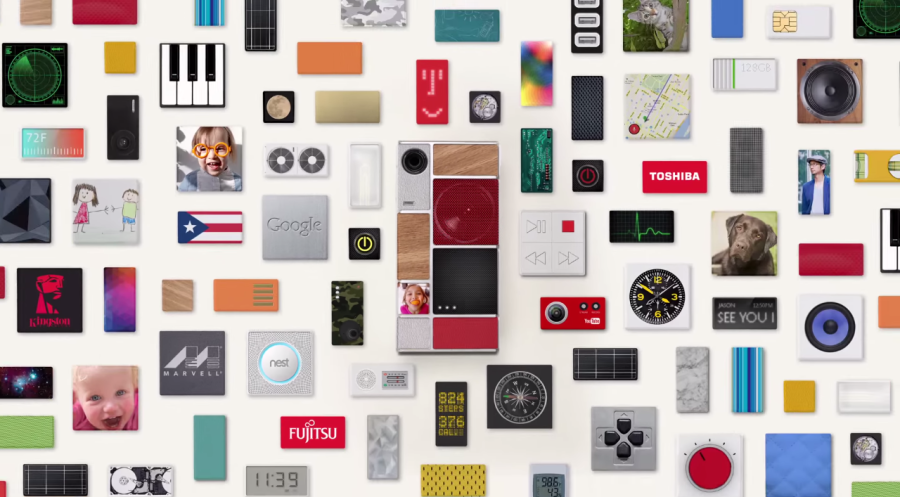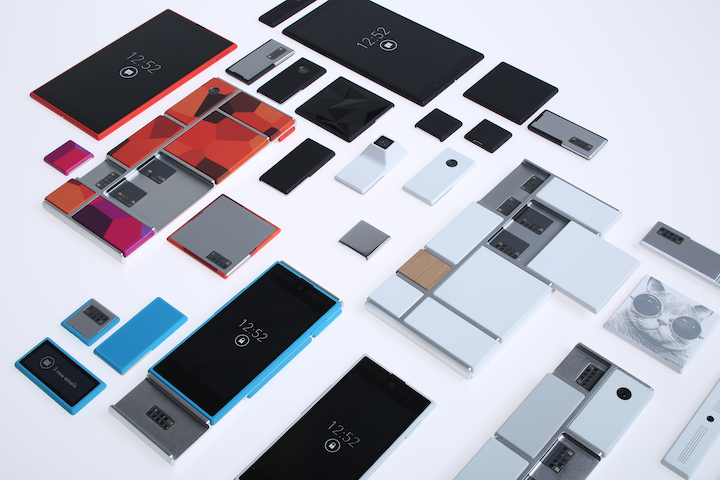Project Ara modular smartphones coming to Puerto Rico
Courtesy of Motorola Blog
Various components, known as modules, for the Project Ara smartphone are shown. Yesterday, Google revealed at a developer concept regarding its modular smartphone, Project Ara, that the phone will first be released in Puerto Rico.
At their developer conference hosted yesterday at Google’s headquarters in Mountain View, Project Ara, the tech-giant’s take on the modular smartphone, announced that they will be releasing a pilot program in Puerto Rico later this year.
Project Ara focuses on creating a smartphone based on individual components, called modules, that can be swapped out at ease to create a fully customizable phone.
Instead of forcing consumers to buy new devices whenever they want to change the hardware, Project Ara hopes to allow consumers to easily change basic phone components, such as the battery, processor, cameras, or even the screen.
“Consumers actually crave choice, but when presented with choice, they seize up – and when they make a choice, they frequently have remorse about making the wrong one. Ara is full of choices,” said Director of Project Ara Paul Eremenko at the developer conference.

Google decided to release the module based phone to Puerto Rico due to its diverse population with a large percentage (75%) of users accessing the Internet through their phones.
“We have to carefully curate and manage the experience. We have a variety of hypotheses, but we need to test them in the field. We have a variety of unanswered questions, and the only way to get answers is to get actual data,” Eremenko said.
The actual phones will be available for sale in mobile trucks, resembling food trucks, that allow for consumers to design and create their phones in less than five minutes.
Currently, Google has developed 11 prototype modules for the latest version of the phone, the Spiral 2. Each module has highly customizable with an independent design and high resolution colors, and can be swapped out with another module using magnets that snap in place.
Although the phone is currently limited to making 3G phone calls, the next version of the phone, Spiral 3, will bring 4G LTE functionality and better antennas for improved performance on par with current top of the line smartphones.
The company hopes that eventually the smartphone will have anywhere from 20 to 30 third party modules available. Module developers are being recruited while chipmakers like Marvell, Nvidia, and Rockchip are working on third party modules.
Although no definite price tag has been decided yet for the phone, it is believed that the cost will vary depending on the number and type of the modules chosen. Project Ara believes that the swappable parts will ultimately cost less than similar quality phones.
Google will be releasing to Puerto Rico through two carriers, Opemobile and Claro. Project Ara will be released globally depending on the response by Puerto Rican consumers.

Vineet Kosaraju (12) is the STEM Editor for both Harker Aquila and Winged Post. He is a senior and has been part of the journalism program for the past...


















![“[Building nerf blasters] became this outlet of creativity for me that hasn't been matched by anything else. The process [of] making a build complete to your desire is such a painstakingly difficult process, but I've had to learn from [the skills needed from] soldering to proper painting. There's so many different options for everything, if you think about it, it exists. The best part is [that] if it doesn't exist, you can build it yourself," Ishaan Parate said.](https://harkeraquila.com/wp-content/uploads/2022/08/DSC_8149-900x604.jpg)




![“When I came into high school, I was ready to be a follower. But DECA was a game changer for me. It helped me overcome my fear of public speaking, and it's played such a major role in who I've become today. To be able to successfully lead a chapter of 150 students, an officer team and be one of the upperclassmen I once really admired is something I'm [really] proud of,” Anvitha Tummala ('21) said.](https://harkeraquila.com/wp-content/uploads/2021/07/Screen-Shot-2021-07-25-at-9.50.05-AM-900x594.png)







![“I think getting up in the morning and having a sense of purpose [is exciting]. I think without a certain amount of drive, life is kind of obsolete and mundane, and I think having that every single day is what makes each day unique and kind of makes life exciting,” Neymika Jain (12) said.](https://harkeraquila.com/wp-content/uploads/2017/06/Screen-Shot-2017-06-03-at-4.54.16-PM.png)








![“My slogan is ‘slow feet, don’t eat, and I’m hungry.’ You need to run fast to get where you are–you aren't going to get those championships if you aren't fast,” Angel Cervantes (12) said. “I want to do well in school on my tests and in track and win championships for my team. I live by that, [and] I can do that anywhere: in the classroom or on the field.”](https://harkeraquila.com/wp-content/uploads/2018/06/DSC5146-900x601.jpg)
![“[Volleyball has] taught me how to fall correctly, and another thing it taught is that you don’t have to be the best at something to be good at it. If you just hit the ball in a smart way, then it still scores points and you’re good at it. You could be a background player and still make a much bigger impact on the team than you would think,” Anya Gert (’20) said.](https://harkeraquila.com/wp-content/uploads/2020/06/AnnaGert_JinTuan_HoHPhotoEdited-600x900.jpeg)

![“I'm not nearly there yet, but [my confidence has] definitely been getting better since I was pretty shy and timid coming into Harker my freshman year. I know that there's a lot of people that are really confident in what they do, and I really admire them. Everyone's so driven and that has really pushed me to kind of try to find my own place in high school and be more confident,” Alyssa Huang (’20) said.](https://harkeraquila.com/wp-content/uploads/2020/06/AlyssaHuang_EmilyChen_HoHPhoto-900x749.jpeg)



